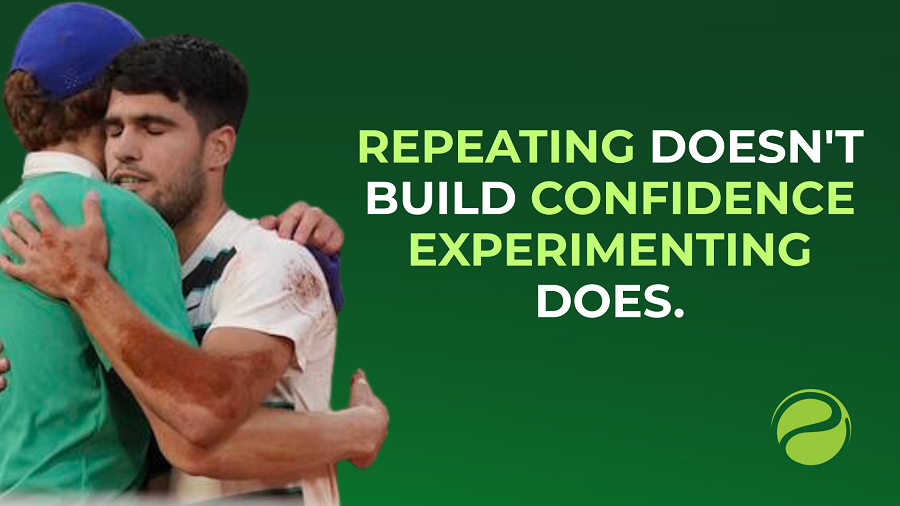EIn tennis, and in life, we are taught to repeat.
Repeat the same movement. Repeat the same drill. Repeat what worked yesterday. Repeat what we’ve already seen.
But repetition is not confidence. Repetition is familiarity. And familiarity is the past.
True confidence is born not from what you already know, but from your ability to navigate the unknown. Confidence comes from experience, not from copying.
We don’t play to repeat. We play to create. We don’t move to prove. We move to discover. The logic of repetition is rooted in fear, the fear of getting lost, of failing, of not being enough.
But here’s the paradox: Repetition doesn’t lead you forward. It anchors you to what once was. It’s the illusion of safety, but it’s not growth. Creation, on the other hand, demands trust, not in what’s visible, but in what’s alive inside of you. It requires a willingness to feel, to sense, to listen… especially to what hasn’t been done before.
The logic mind wants a path it knows. But the player, the real one, wants to go where he hasn’t been.
Repetition tries to control. Creation allows you to flow. And there’s only one thing that allows you to flow: Sound. Because sound is vibration. And vibration is now. You can only move with timing if you’re listening. You can only create rhythm if you’re present. And that’s why we say: what you see is the past, but what you hear is the future.
To experiment is to step into the unknown with trust. To repeat is to stay behind, hoping for certainty.
So I ask you: Are you training players to repeat what’s already been done? Or are you guiding them to experiment with what’s never been seen?
Because the game doesn’t reward the ones who repeat, It opens up for those who dare to create

